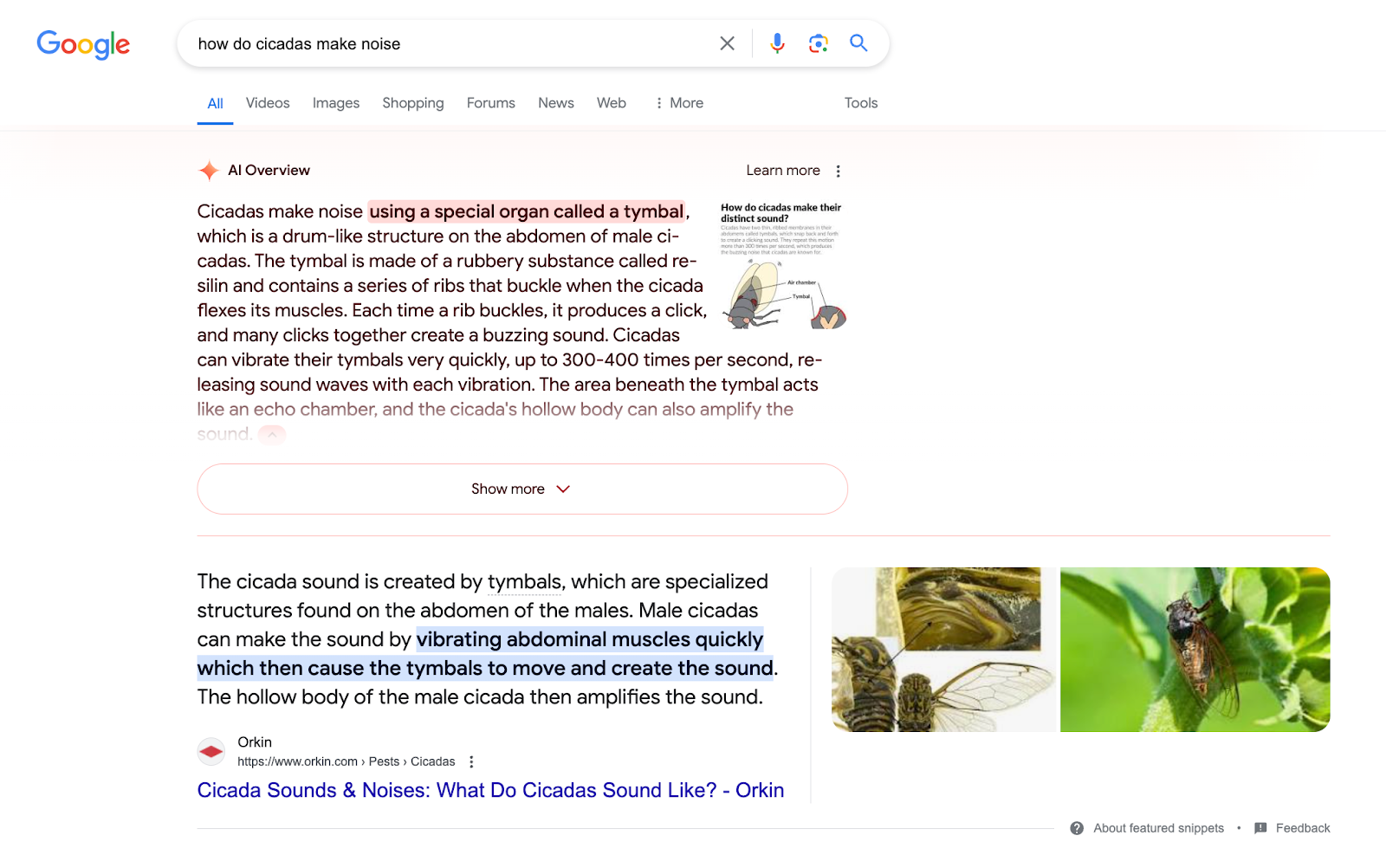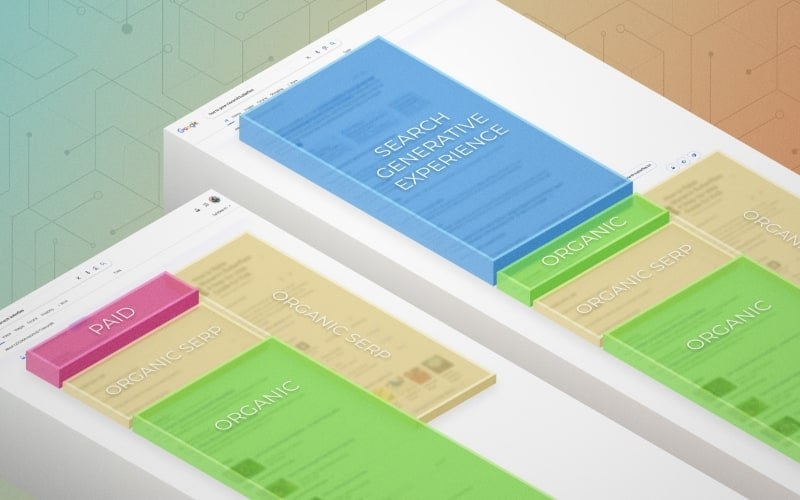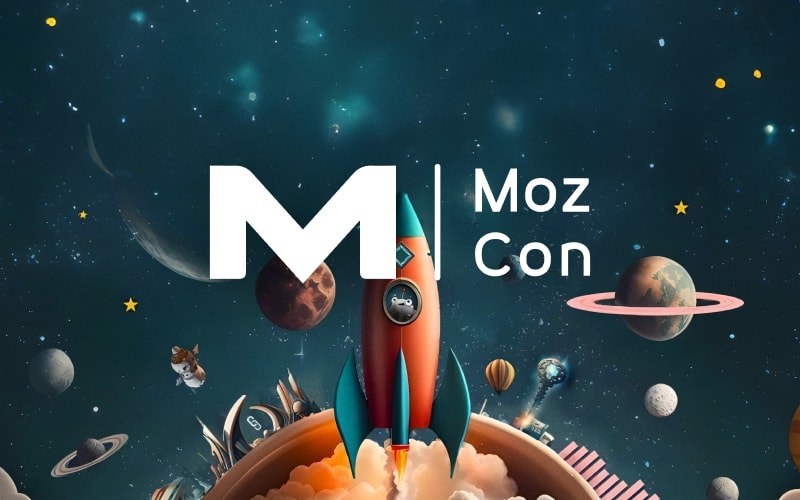Industry Trends
Search

Written By
Wray Ward
AI Overviews have officially entered the chat.
On May 14, 2024, Google launched AI Overviews (formerly known as Search Generative Experience, or SGE) for users in the United States, with plans to expand globally.
These AI-generated summaries now appear directly in search results for qualifying search queries, regardless of whether users have opted in. AI Overviews take a mix of top-ranking and non-top-ranking results and use AI to generate one summarized answer to a search query. AI Overviews do not show up for every search, but they will typically appear for top-of-funnel searches such as “what is,” “how to,” “why,” etc.
So what does this mean for marketers? How will AI Overviews impact the way people search and, more importantly, change how people decide to click through to a page?
Additional changes to AI Overviews and the long-term impact on marketing remain largely unknown. But marketers can stay ahead by staying vigilant and watching these changes in real time.
Let’s look at four ways Google’s somewhat unexpected launch of AI Overviews may impact marketing and organic search in the coming months and beyond.
What does the launch of AI Overviews mean for marketers?
1. Real expertise will be more in demand than ever before.
At MozCon 2024, a few speakers talked about how user-generated content can provide insights into what audiences want in real time. The surge in demand for real subject matter expertise and growing organic visibility for UGC is likely due to people’s desire for authentic opinions from genuine experts. In 2024, Reddit is a classic example of this trend in action: According to data from Similarweb, Reddit’s website traffic has grown 39% in 2024 over the previous year.
Google typically makes decisions based on what people respond to and what they like. Complaints from users about spamlike, unhelpful content resulted in Google making drastic algorithm updates and shifts to the types of content now occupying more real estate in organic search results. The March 2024 core update, for example, resulted in severe declines in visibility for publisher, news and affiliate websites, while the visibility of sites that rely on UGC, communities, forums and blog posts is growing.
How can I start to leverage UGC on my website?
Cite your sources when writing long-form content on your website. Whenever possible, leverage testimonials from real customers or partners in your content. Start incorporating forums into your research process when ideating topics. What kinds of questions are your audiences asking on Reddit? Quora? Fine Homebuilding? By incorporating diverse forms of UGC, you’ll create a dynamic, ever-evolving website that resonates with your audience and reflects real experiences with your brand.
2. Summaries will become the new normal.
Since the recent launch of AI Overviews, users have already begun to expect a summary for most search results. As users evolved from searches with one or two keywords to long-tail searches with more complex tones, savvy marketers adapted to help ensure these users find their websites.
Take featured snippets. SEO professionals and content writers who optimize pieces of content to rank for a featured snippet have adapted to writing headings that directly signal to Google the question they are answering for a specific query.
The beta launch of SGE in May 2023 began a new era of search results for those who opted in. One year later, the official (and somewhat abrupt) launch of AI Overviews took many marketers by surprise. Google is forcing immediate adoption, as all users in the U.S. currently using Chrome are now receiving AI Overviews for qualifying searches.
What does this mean for the future of, well, everything?
I predict that we will start to see AI-generated summaries everywhere. For example, I’ve already started to see Meta AI-generated summaries on certain comment sections in my Facebook feed.






